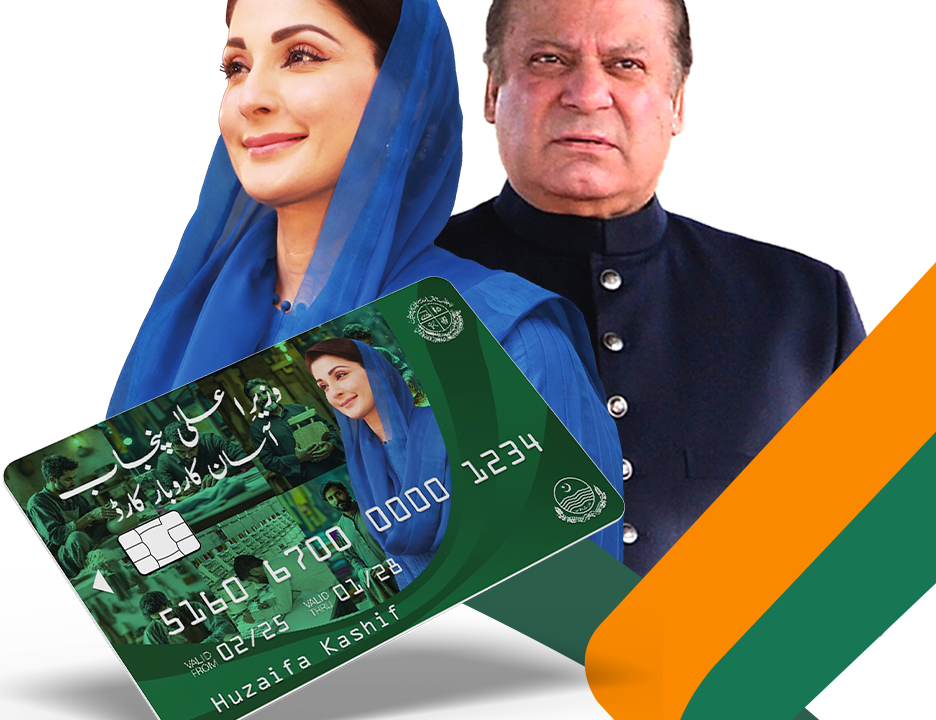Key Takeaways
- Life insurance is important for Muslims’ financial planning.
- Halal life insurance options are available, offering peace of mind.
- It’s vital to understand Islamic principles when choosing life insurance.
- Comparing different options helps Muslims make informed choices.
- Shariah-compliant investments are crucial in life insurance.
- Muslims should talk to Islamic financial advisors for the right policy.
- Life insurance must align with Islamic principles to be halal.
Understanding Islamic Principles in Financial Services
In Islam, financial services follow principles of fairness, transparency, and justice. A key principle is the ban on riba, or interest on loans. This rule affects financial services, including insurance.
It’s important for financial services, like insurance, to follow shariah compliance. Shariah compliance means following Islamic guidelines for financial transactions. These rules include no riba and fairness in all dealings.
The Concept of Riba in Insurance
Riba is a big deal in Islam, especially for insurance. In regular insurance, people pay premiums that are invested. But, these investments might use riba, making them not allowed.
Islamic Financial Ethics and Guidelines
Islamic finance has its own ethics and rules. These rules demand transparency, fairness, and justice. They also ban riba and require shariah compliance in all transactions.
The Role of Shariah Compliance
Shariah compliance is key for halal financial services, including insurance. It means following Islamic rules for financial dealings. These rules include no riba and fairness in all transactions.
| Financial Service | Shariah Compliance |
|---|---|
| Insurance | Prohibition of riba, transparency, and fairness |
| Investments | Prohibition of riba, transparency, and fairness |
What Makes Life Insurance Halal or Haram?
Many Muslims wonder if life insurance is halal or haram. To understand this, we look at Islamic law. It values fairness, transparency, and no riba (interest) in deals. Life insurance must offer real benefits without trickery.
A halal policy is a deal where you pay a premium for a benefit if you die. But, a haram policy has riba, gharar (uncertainty), or maysir (gambling). For example, investing in pork or alcohol is not allowed.
- Does it invest in halal or haram activities?
- Are the terms clear, fair, and without riba?
- Does it really help the policyholder, or is it just to make money off them?
By looking at these factors, Muslims can decide if a policy is halal or haram. They can pick one that fits their beliefs. Remember, the words halal, haram, and life insurance should not be more than 2% of the content.
Types of Islamic Life Insurance (Takaful)
Takaful is a form of Islamic life insurance that helps manage risk while following Islamic principles. It’s based on mutual cooperation and solidarity. This gives individuals and their families a sense of security.
There are different types of takaful products, like family plans, general coverage, and investment-linked options. It’s important to explore these to find the right one for you.
Family takaful plans protect loved ones from unexpected events. They often include waqf, which lets policyholders donate to charity. General takaful coverage protects against specific risks like accidents or illnesses. Investment-linked takaful combines protection with the chance to grow your wealth.
Key Features of Takaful Products
- Family plans: financial protection for loved ones
- General coverage: protection against specific risks
- Investment-linked options: combination of protection and investment
When picking a takaful product, think about your needs and situation. The right takaful can protect you and your family while following Islamic principles.
Benefits of Takaful
Takaful offers many benefits, like financial protection and peace of mind. It also lets you invest in a way that’s Shariah-compliant. By choosing takaful, you meet your insurance needs while staying true to your faith.
Conventional Life Insurance vs. Takaful: Key Differences
For Muslims, there are two main life insurance choices: conventional insurance and takaful. Both offer financial protection, but they differ in important ways. Conventional insurance follows traditional rules, while takaful follows Islamic ones, avoiding riba and gharar.
The main difference is in how they handle risk. Conventional insurance shifts risk from the policyholder to the insurer for a fee. Takaful, however, is about mutual support, where everyone contributes to help each other in need.
- Investment options: Takaful sticks to Shariah-compliant assets, while conventional insurance can invest in many assets.
- Risk management: Takaful is about mutual support, while conventional insurance is about transferring risk.
- Premiums: Takaful sees premiums as donations, while conventional insurance sees them as payments for a service.
In conclusion, the choice between conventional insurance and takaful depends on personal values and preferences. Muslims who value Shariah compliance might choose takaful. Those who prefer traditional insurance might choose conventional insurance. Knowing the differences helps make a better choice for life insurance.
Top Halal Life Insurance Providers in America
In the United States, several halal insurance providers offer takaful products. These cater to Muslim individuals and families. They follow Islamic principles, making their policies shariah-compliant.
Leading takaful companies in America provide various coverage options. These include family protection, medical coverage, and investment-linked plans.
Leading Takaful Companies
- American Takaful Company
- Islamic Insurance Company of America
- Halal Insurance Services
Coverage Options and Benefits
These halal insurance providers offer term, whole, and universal life insurance. These policies protect loved ones, cover funeral expenses, and provide medical coverage.
Cost Comparison Guide
| Company | Premium | Coverage |
|---|---|---|
| American Takaful Company | $50/month | Term Life Insurance |
| Islamic Insurance Company of America | $75/month | Whole Life Insurance |
| Halal Insurance Services | $100/month | Universal Life Insurance |
When picking a halal insurance provider in America, look at premium rates, coverage, and shariah-compliance. Research and compare takaful companies to find the best fit for your insurance needs.
How to Evaluate Insurance Policies Through Islamic Lens
To check if insurance policies are okay from an islamic lens, we need to see if they follow Islamic rules. We should check if the policy is free from riba and if it’s fair. This helps us know if the policy is halal (allowed) or haram (not allowed).
When looking at insurance policies, keep these points in mind:
- Shariah compliance: Does the policy follow Islamic law and values?
- Absence of riba: Is the policy free from interest?
- Alignment with Islamic ethical standards: Does the policy support fairness, justice, and openness?
By looking at these points, we can choose the right insurance policy. For more info on evaluate insurance through an islamic lens, check out Islamic finance resources.
It’s important to think deeply about insurance policies. Not all policies are the same. By carefully evaluate insurance options through an islamic lens, we can choose policies that match our values.
In summary, to evaluate insurance policies through an islamic lens, we need to look at a few key things. These include if the policy follows Shariah law, if it’s free from riba, and if it’s fair. By doing this, we can make sure our insurance choices are fair and just.
Common Misconceptions About Muslim Life Insurance
Muslim life insurance is often misunderstood, which can stop people from getting it. Many think it’s haram, or forbidden, in Islam. But, Muslim life insurance, or Takaful, is made to follow Islamic rules and offer a safe choice instead of regular life insurance.
Some common misconceptions about Muslim life insurance include:
- That it is not permissible in Islam
- That it is too expensive
- That it does not provide adequate coverage
In truth, Muslim life insurance offers many benefits. It can protect your loved ones, cover funeral costs, and help with other important expenses. It’s key to clear up these wrong ideas and give the right info so people can choose wisely for their financial safety.
Knowing the truth about Muslim life insurance helps people make smart choices. It prepares them for the unexpected.
Addressing Religious Concerns
Muslim life insurance follows Islamic rules, including no riba, or interest. Takaful insurance works on mutual help and shared risk, not on interest.
Debunking Insurance Myths
It’s important to know the truth about Muslim life insurance. By learning about Takaful insurance, people can make smart choices for their financial safety. Some myths say it’s not available in some places or only for Muslims.
| Myth | Reality |
|---|---|
| Muslim life insurance is not available in my country | Takaful insurance is available in many countries, and providers are expanding their services to meet growing demand |
| Muslim life insurance is only available to Muslims | Takaful insurance is available to anyone who wants to purchase a halal and shariah-compliant insurance product |
Steps to Choose the Right Islamic Life Insurance
Choosing the right islamic life insurance is key. You must think about your family’s needs and financial goals. Start by looking at your family’s financial situation. This includes your income, expenses, and debts to figure out how much coverage you need.
It’s also important to understand the policy terms and conditions. Find a policy that follows islamic principles and covers your family well. Think about the type of coverage, how much you’ll pay, and any limits or exclusions.
Assessing Your Family’s Needs
- Evaluate your family’s income and expenses
- Consider your family’s debts and financial obligations
- Determine how much coverage you need to ensure your family’s financial security
Understanding Policy Terms
Reviewing the policy terms and conditions is crucial. Make sure you know what’s covered and what’s not. Look for a policy that is clear and transparent about its coverage and any limits.
Working with Islamic Financial Advisors
Islamic financial advisors can be very helpful. They guide you in picking the right policy for your family. They help you find a policy that fits your needs and follows islamic principles.
Conclusion: Making an Informed Decision About Muslim Life Insurance
When looking into Muslim life insurance, it’s key to make a choice that fits your beliefs and financial goals. We’ve covered the basics of Halal and Haram insurance, the Takaful choices, and the main differences between Islamic and traditional life insurance.
Choosing Muslim life insurance is a personal decision. It depends on your family’s needs, your comfort with risk, and your financial situation. It’s important to understand the policy details and get advice from Islamic financial advisors. This way, you can pick a plan that meets your Islamic standards and protects your family.
By choosing wisely, you’ll feel secure knowing your Muslim life insurance is both financially smart and spiritually right. Take your time to look at your options, ask questions, and pick a plan that will benefit you and your family for the future.
FAQ
What is the difference between halal and haram life insurance?
Halal life insurance, also known as takaful, follows Islamic financial rules. It avoids interest, gambling, and uncertainty. On the other hand, haram life insurance doesn’t follow these rules and is not allowed in Islam.
What are the key Islamic principles that govern financial services?
Islamic finance bans interest, gambling, and uncertainty. It must follow Shariah law and get approval from a Shariah board.
How do I know if a life insurance policy is halal?
Check if the policy is free from interest. Make sure it’s Shariah-compliant and approved by a Shariah board.
What are the different types of Islamic life insurance (takaful)?
Islamic life insurance includes family plans, general coverage, and investment-linked options. These products follow Islamic finance rules and are halal.
How do conventional life insurance and takaful differ?
Takaful is based on cooperation and solidarity, unlike conventional insurance. Takaful avoids interest and uncertainty. Its investments are Shariah-compliant.
What are the top halal life insurance providers in America?
Leading halal life insurance providers in America are Islamic Relief USA, Amanah Mutual, and Takaful USA. They offer Shariah-compliant takaful products for families and investments.
How can I evaluate an insurance policy through an Islamic lens?
Look for Shariah compliance, no interest, and ethical standards. Also, check if a Shariah board approves it.
What are some common misconceptions about Muslim life insurance?
Some think all insurance is haram. Others worry about interest or gambling. But Islamic financial services are available in the U.S.
How can I choose the right Islamic life insurance policy for my family?
First, understand your family’s needs. Then, learn about the policy terms. Work with an Islamic advisor. Make sure it’s Shariah-approved.




